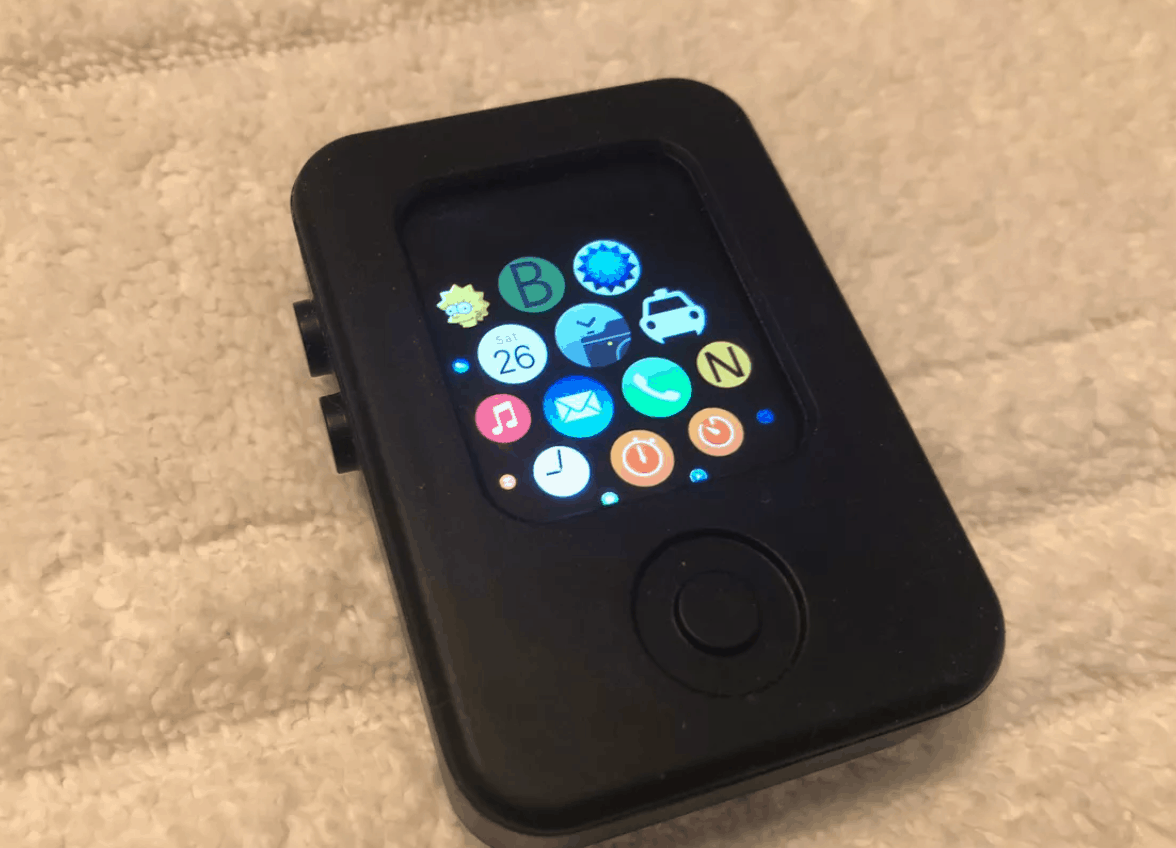New images and video purporting to show an Apple Watch prototype, concealed by a security case that resembles a tiny iPod, offer a rare look behind the product-development curtain of the notoriously secretive company built by Steve Jobs. First teased a few months ago by Twitter user Apple Demo, this is our first look at the device turned on and running Apple’s own internal development apps on a pre-watchOS 1.0 software build.
The video starts by showing what appears to be the original cardboard packaging used to deliver the prototype hardware to testers. “This product is classified as Apple Confidential and is designated an ‘Ultra’ security program,” reads the label. “This prototype MUST be returned when recalled or when your,” says the labeling before being obscured to hide the origins of the device. A sticker on the back of the prototype device itself shows it’s a “PVTe” configuration, which presumably means Production Validation Testing (engineering) in line with language seen on previous Apple development hardware, like the leaked EVT board for the original iPhone.
When the touchscreen device is turned on, we can see that it’s configured to show Apple’s own internal apps. One is the “Lisa tester,” identified with an icon of Lisa Simpson but likely a tribute to Jobs’ daughter and namesake of Apple’s Lisa computer — one of the first computers to feature a GUI interface. The app lets testers tweak the UI elements of the prototype Watch. The “Springboard zoom” app found inside the Lisa tester is very similar to the original watchOS home screen that shipped on the first Apple Watch in 2015.
There’s no Digital Crown for navigation. Instead, buttons along the right side of the case can be used for home and power. The Home button on the front and what appear to be volume up/down buttons on the left are never shown being used and might not be functional. When clicking into settings, the device reports that it hasn’t received FCC approval for sales, adding further confirmation of its prototype status.
Assuming the prototype is real — and it definitely seems that way — then it’s a remarkable example of a pre-production Apple device we were never meant to see.

